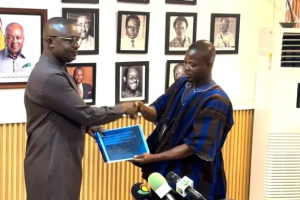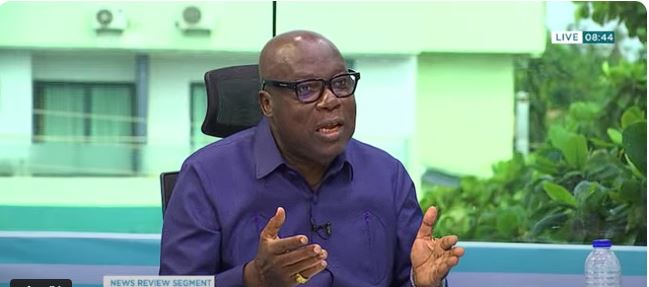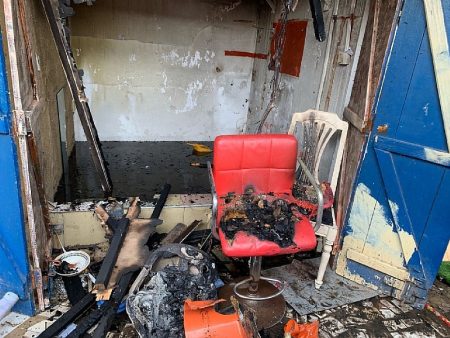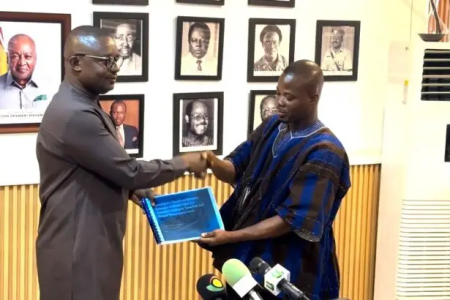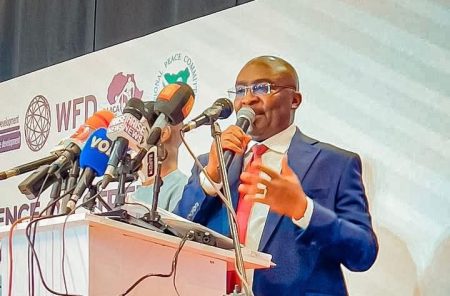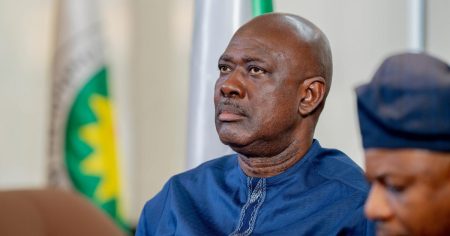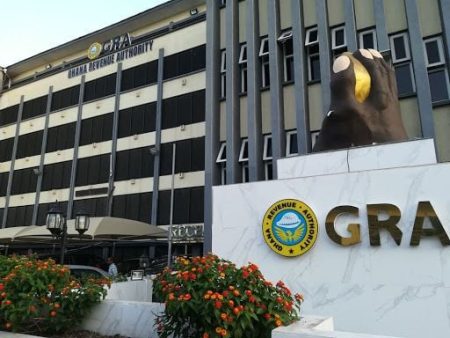The devastating impact of illegal mining, commonly known as “galamsey,” on Ghana’s environment and economy has prompted calls for drastic measures to curb the practice and restore the damaged lands. Joseph Ade Coker, former Greater Accra Regional Chairman of the ruling National Democratic Congress (NDC), advocates for a complete ban on galamsey and a temporary suspension of small-scale mining activities. He argues that these decisive steps are crucial to protect Ghana’s natural resources from further degradation and allow for comprehensive land reclamation efforts. Ade Coker further proposes a temporary halt to large-scale mining operations for a period of three to four years, providing a window for focused environmental restoration and rehabilitation of the mined areas.
Central to Ade Coker’s argument is the disproportionately low economic benefit derived from Ghana’s gold resources compared to the immense environmental damage caused by mining activities. He highlights the case of $2 billion worth of gold exported to Dubai, from which Ghana received only a meager portion due to smuggling and other illicit practices. This disparity underscores the urgency of addressing the issue and implementing effective regulatory mechanisms to maximize the country’s revenue from its natural resources while minimizing environmental destruction. The call for a comprehensive ban on galamsey and the suspension of other mining activities reflects the growing national concern over the devastating consequences of unchecked exploitation.
Furthermore, Ade Coker emphasizes the need for stricter control and monitoring of mining equipment, particularly excavators, to prevent their use in illegal operations. He proposes a nationwide inventory of all excavators, identifying those used in road construction and other legitimate activities, and requiring mining companies to register and designate the location of their excavators. This measure aims to enhance transparency and accountability within the mining sector, making it more difficult for illegal miners to acquire and operate heavy machinery without detection. This meticulous tracking system could significantly curb illegal mining activities and ensure that excavators are used for their intended purposes, contributing to national development rather than environmental destruction.
The urgency of addressing illegal mining is further underscored by recent law enforcement actions. The Western Central Regional Police Command apprehended eleven individuals, comprising seven Ghanaians and four Chinese nationals, for engaging in illegal mining along the Bonsa River. The arrests, resulting from an intelligence-led operation, demonstrate the ongoing efforts to combat galamsey and bring perpetrators to justice. This proactive approach signals the government’s commitment to tackling the issue and protecting the country’s water bodies and ecosystems from the harmful effects of illegal mining. These arrests highlight the collaborative efforts between law enforcement agencies and intelligence networks to identify and dismantle illegal mining operations.
The multifaceted approach proposed by Ade Coker, encompassing a ban on galamsey, suspension of small-scale mining, a temporary halt to large-scale mining for land reclamation, and stringent monitoring of excavators, reflects the gravity of the situation and the need for a comprehensive and coordinated response. These measures aim to strike a balance between economic development and environmental protection, ensuring the sustainable utilization of Ghana’s natural resources for the benefit of present and future generations. The proposed interventions are crucial for the long-term health of Ghana’s environment and economy, signaling a shift towards more responsible and sustainable mining practices.
The fight against illegal mining requires a multi-pronged strategy involving legislative action, enforcement of existing laws, community engagement, and international cooperation. The recent arrests of illegal miners demonstrate the government’s commitment to enforcing the law and holding perpetrators accountable. However, long-term success hinges on addressing the root causes of galamsey, including poverty, unemployment, and weak governance. Creating alternative livelihood opportunities for those involved in illegal mining and strengthening institutional capacity to regulate the mining sector are vital steps toward achieving sustainable solutions. This comprehensive approach requires the collective effort of government agencies, civil society organizations, mining companies, and local communities to protect Ghana’s natural heritage and ensure the sustainable development of the country.




